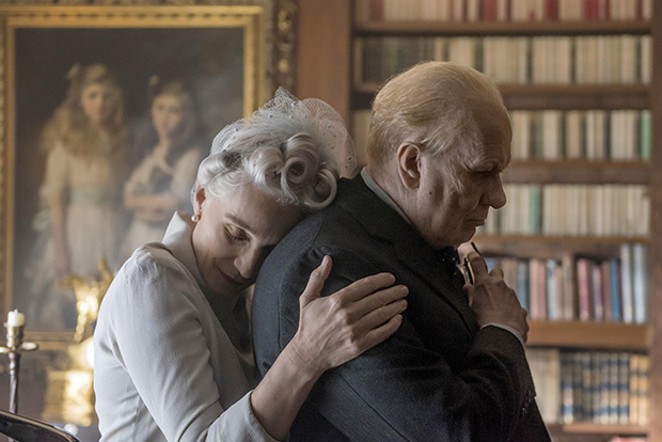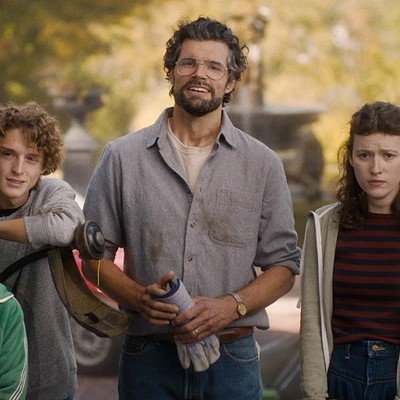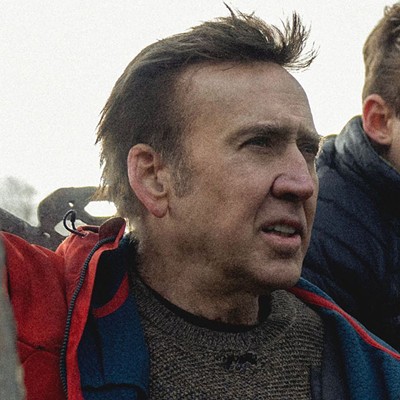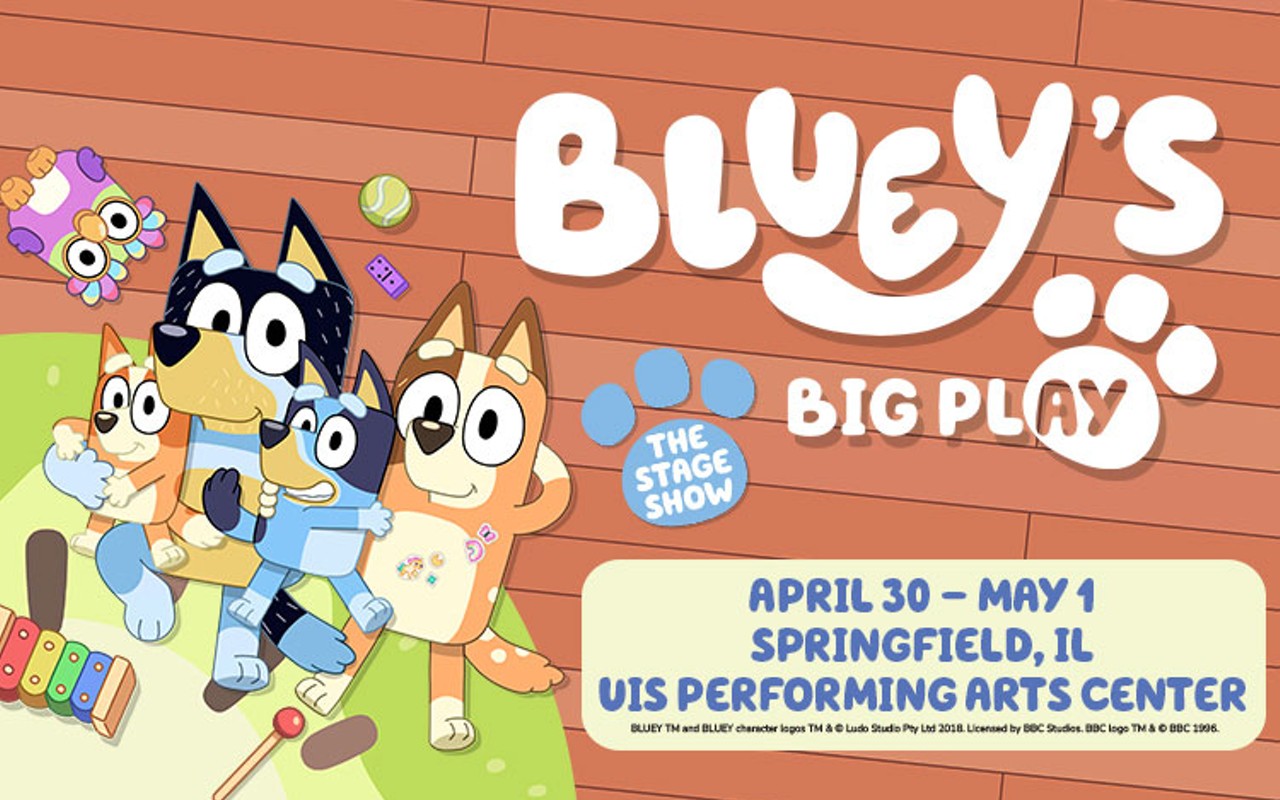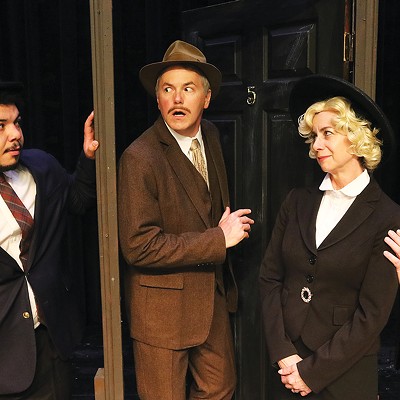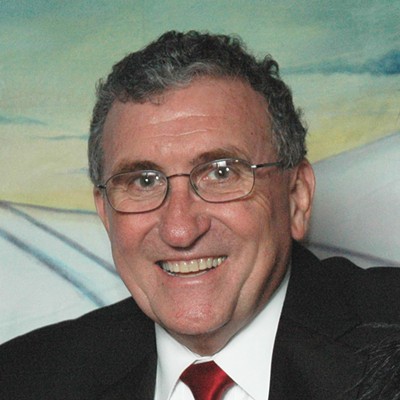One of the mistakes that can occur when looking at the past is that we tend to see things more positively than they actually were. The inclination to buy into the notion of “the good old days” speaks to the power and deceptive nature of nostalgia. I think there’s a certain degree of this at play in any history-based film, and it exists in Joe Wright’s Darkest Hour, an account of Winston Churchill’s first five weeks as England’s prime minister and his efforts to unite the country so they could combat Hitler’s advancing forces.
While the film employs certain elements of license where telling the story is concerned, one thing that director Joe Wright and screenwriter Anthony McCarten cast in an appropriate light is the political process on display. Replete with strong, honorable leadership, bipartisanship and compromise for the greater good, this example of responsible government, which has seemingly become a thing of the past in the United States, will likely strike viewers as something to be wished for.
Gary Oldman stands at the center of the film as Churchill, a portrayal that is humanistic and accessible as all involved are willing to show the man with warts and all. While he put on a brave face for his country at a time when the citizens of England needed faith in their government, behind closed doors he was wracked with self-doubt, struggling with debt, and fearful of neglecting his children and loving wife Clementine (Kristin Scott-Thomas), who keeps him on track.
While dealing with this, Churchill is faced with uniting a country against the looming threat that was Nazi Germany, convincing them that Hitler was not to be trusted, and that any non-aggression pact they may sign with him would be ignored. The nation did not want to take an aggressive stance, and it would require some subtle arm-twisting on Churchill’s part to convince key figures – King George VI (Ben Mendelsohn) and Neville Chamberlain (Ronald Pickup) – to stand up.
As constructed, the film plays out like something of a thriller, what with dire reports coming in of Hitler’s continued march across Europe and the British government’s inability to act. The stubbornness of the pacifists Churchill has to contend with seems unshakeable, and tension mounts as they continue to resist the obvious. While we know the outcome, seeing the behind-the-scenes machinations of how the prime minister was able to unite the country and those who led it proves fascinating.
One of the great things about Oldman’s performance is that he subtly shows the strain of these trials, especially during moments of silent contemplation. The prosthetic makeup and design by artist Kazuhiro Tsuji is astonishing, and while the actor is physically consumed by it, he’s never completely lost, able to convey the myriad of emotions required. While Oldman does adjust his voice and physicality, much of this performance lies in his eyes, which are used to an astonishing variety of effects. That he rises to the challenge of delivering some of the best-written and inspiring political speeches of all time comes as no surprise.
What emerges from Darkest Hour is a vital reminder of the resilience needed in times of great peril as well as the cooperation required to extinguish great threats. Churchill – who Oldman does proud in the film – possessed this quality as well as the willingness to extend an arm across the aisle to get things done. The good old days, indeed.
Contact Chuck Koplinski at [email protected].
Oldman shines in compelling Hour
[
{
"name": "Air - MedRect Combo - Inline Content 1",
"component": "11490391",
"insertPoint": "3",
"requiredCountToDisplay": "1",
"parentWrapperClass": "fdn-ads-inline-content-block"
},{
"name": "Air - MedRect Combo - Inline Content 2",
"component": "11490392",
"insertPoint": "7",
"requiredCountToDisplay": "5",
"parentWrapperClass": "fdn-ads-inline-content-block"
},{
"name": "Air - MedRect Combo - Inline Content 3",
"component": "11490393",
"insertPoint": "12",
"requiredCountToDisplay": "9",
"parentWrapperClass": "fdn-ads-inline-content-block"
}
]
Illinois Times has provided readers with independent journalism for almost 50 years, from news and politics to arts and culture.
Your support will help cover the costs of editorial content published each week. Without local news organizations, we would be less informed about the issues that affect our community..
Got something to say?
Send a letter to the editor and we'll publish your feedback in print!

